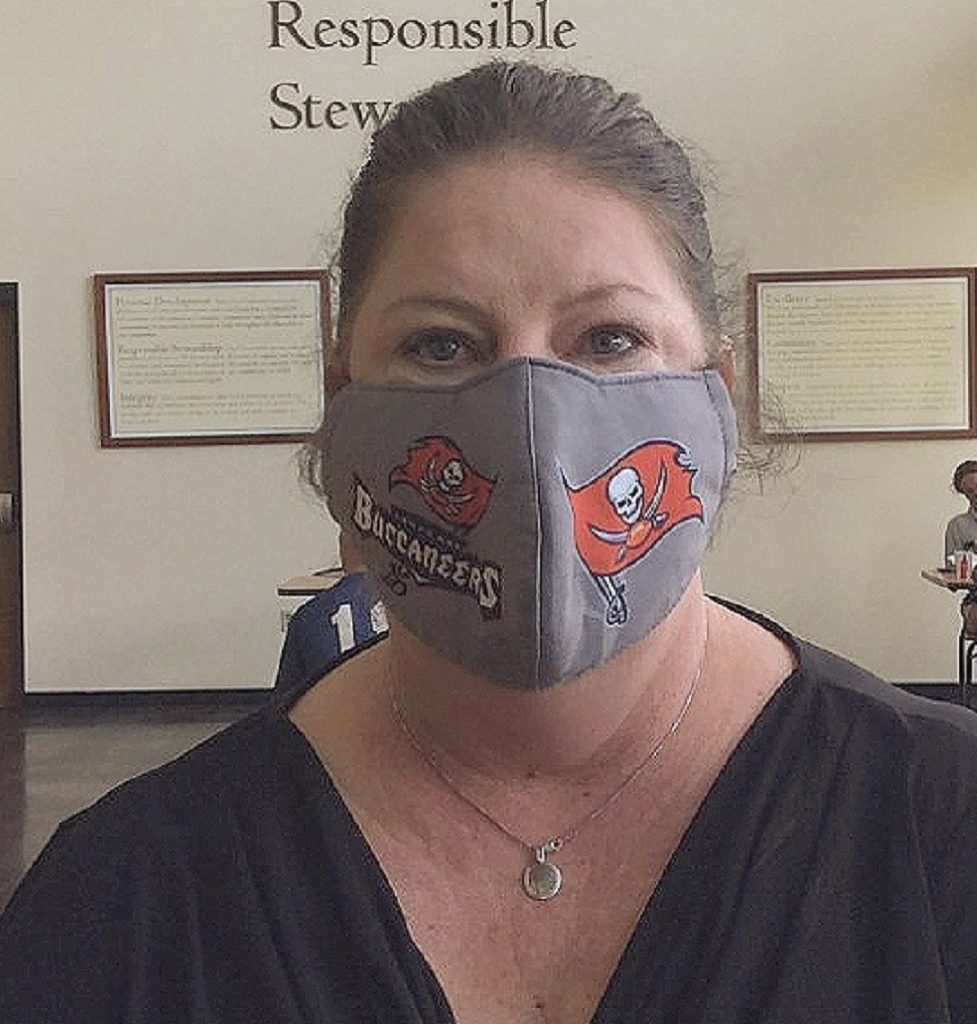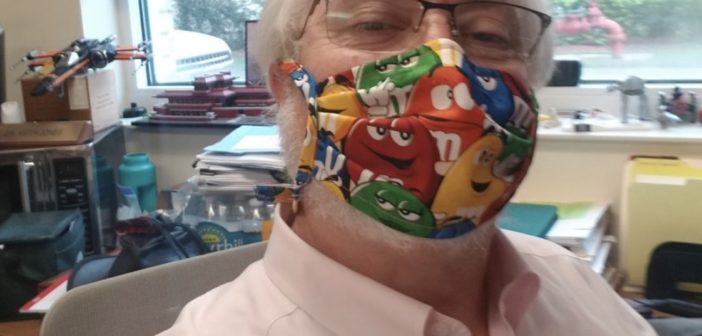By: Erika Morales, Contributing Writer
Our everyday fashion has been impacted by the COVID-19 pandemic. Mask wearing is recommended in order to prevent airborne travel of COVID-19. The CDC has stated that “everyone should wear a mask in public settings and when around people who don’t live in your household, especially when other social distancing measures are difficult to maintain.”
When Saint Leo University sent an email to students about their plan to return to campus, they emphasized that “face masks or face covering must be worn by all when in the presence of others and in public settings both indoors and outdoors.” Both faculty members and students are required to stay social distancing even when wearing a mask.
Students are now incorporating their masks into their everyday fashion and can style their outfits around their masks when going outside. Some students buy their masks, while others make their own.

Dr. Keith C. Jones, an associate professor of marketing, wears his mask to have fun. (Photo Credit: Saint Leo University Instagram @saintleouniv)
During registration, Saint Leo University gave students a mask with the University logo to show the college spirit.
“I am okay with wearing a mask every day,” said Eduardo Toyos, a Freshman majoring in Biology. “I have 16 different masks, so I never get bored with the same color. Plus, I want to do my part with making Saint Leo safe.”
However, our fashion sense has been affected not only in the 20th-century. There have been pandemics and illnesses that have affected people in the past that resulted in a change of fashion items and clothing.
“Speaking from a fashion viewpoint, there have been instances throughout European history that have been affected by pandemics and medical epidemics in general,” said Dr. Padraig Lawlor, an assistant professor of history here at Saint Leo.
One example is the well-known “bird mask that was donned by “doctors” during the bubonic plague or black death [which was]designed to [help doctors]keep their distance from sick patients,” said Lawlor.
Not only did the bubonic plague affect fashion, people who suffered from leprosy also wore items to identify themselves with the illness. “In the early modern era (1400-1700), folks with leprosy were forced to wear a heart on their clothing and wear bells on their clothing to warn others of their presence,” said Lawlor.
Another example is the crinoline dress from the Victorian era. This style of dress featured “a comical looking voluminous skirt designed to act as a barrier between people in a small setting. Smallpox and cholera outbreaks prompted the wearing such attire,” said Lawlor.

Virginia (Robin) Lavalle, dining service manager, wears her mask to support her team. (Photo Credit: Saint Leo University Instagram @saintleouniv)
However, there was a downside to wearing such dresses. “Ironically, these dresses actually instigated more incidents than mitigating them, as there were reports of people catching fire and burning to death,” said Lawlor.
Historically, fashion has been affected by illness and now COVID-19 is affecting the 20th century. It seems that COVID-19 is here to stay for a while.
In an article from Yale School of Medicine, Virginia Pitzer, an Associate Professor of Yale School of Public Health said that COVID-19 will likely last for “months rather than weeks.”
“We may get into a cycle of periodic social distancing measure until it is possible to develop and mass-produce a vaccine, which experts say will take 12-18 months, or we can find effective ways to treat COVID-19,” said Pitzer.
For now, students and faculty members are encouraged to continue wearing their masks to protect the pride.

The lion statue at the front of campus is also showing off his fashion with the Saint Leo University mask. The lion reminds students to wear their masks. (Photo Credit: Saint Leo University Instagram @saintleouniv)





